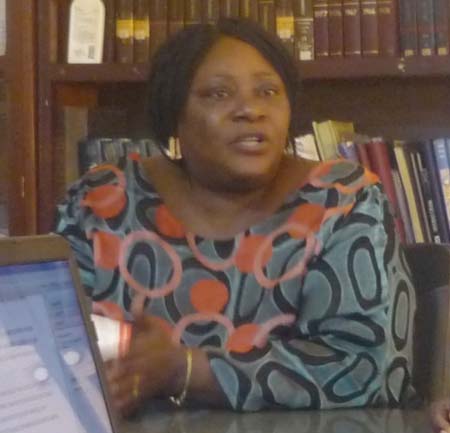
The two-day activity funded by ActionAid International - the Gambia and held at the GTU Secretariat saw the development and review of right 5 and right 10 of the Promoting Rights in Schools campaign.
The Promoting Rights in Schools (PRS) Framework was launched by Action Aid International The Gambia (AAITG) in 2010 and in 2011.
Its implementation began in six countries in Africa through the Action for Children’s Rights in Education (ACER) Project.Its overall goal is ensuring that girls and children with disabilities gain access to free, quality public education.The Framework also seeks to ensure an ‘ideal’ school that guarantees better learner outcome, support to pupils’ leaning and facilitates the achievement of national targets for education.
The overall goal of the PRS initiative is to engage citizens in improving the quality of education, a GTU statement said. The Charter and indicators support the development of local, district and national reports on the state of education rights, based on citizens’ perspectives and mobilisation.
“The research to action approach promotes evidenced-based advocacy and campaigning, which hopes to lead to sustainable change,” it said.
The objective of the framework is to develop a participatory and empowering process with parents, children, teachers and others that will generate rigorous data on one or more of the 10 core education rights.
This, according to the objective, is to produce school-level reports that catalyze future action on education rights; to consolidate reports at district and national levels as a basis for people-centred advocacy; to identify both the positive progress that has been made on education and the challenges that remain; and to popularize knowledge of the 10 core education rights and their basis in international conventions/ treaties and in the national constitution/legislation.
Under Right 5, the right to a safe and non-violent environment, children should be safe on route to and in school. Clear anti-bullying policies and confidential systems for reporting and addressing any form of abuse or violence should be in place, the statement noted.
RIGHT 10, which is the right to quality learning; girls and boys have a right to a quality learning environment and to effective teaching processes so they can develop their personality, talents and physical and mental abilities to their fullest potential.
Talking about Methodology, the statement said the participatory methodology takes the Charter on Promoting Rights in Schools as a starting point for a survey process that aims to involve a range of local and national actors.
“Under each of the 10 rights in the Charter there is a series of indicators on which it is important to collect data through the various participatory processes and consultations.
A number of participatory visualisation tools are proposed to generate a broad process of empowerment and analysis in each school and survey area, it stated.
Data collected through these processes can be supplemented with focus group discussions and a review of school records. It will also be important to collect powerful examples, stories or pieces of information that do not immediately fit this format, it added, saying information should be included on how the data was collected and on the number of people who participated in the different moments of the process, Including photos or examples of visualisation tools used to collect the information or of the process of developing them.
Speaking at the opening ceremony, Antoinette Corr-Jack, General Secretary of Gambia Teachers’ Union, said promoting rights is an everyday engagement, adding that one cannot remote rights from education.
She added that the activity is to develop an instrument that will help them to conduct their research in schools as we are all important stakeholders in education.
Read Other Articles In Article (Archive)
New IFAD Project to boost incomes for Gambia Rural Farmers
Mar 7, 2012, 2:17 PM
Soccer FC play qualifiers in Brikama next season
Sep 20, 2012, 10:39 AM


